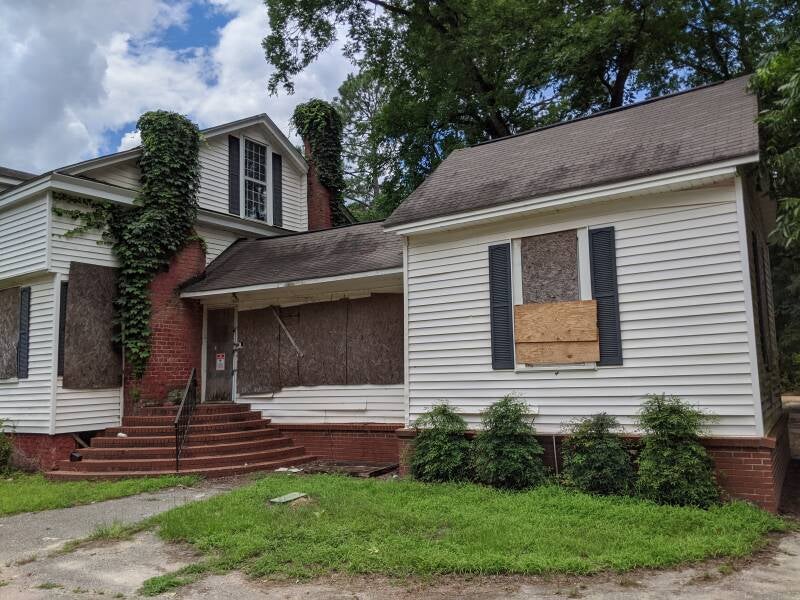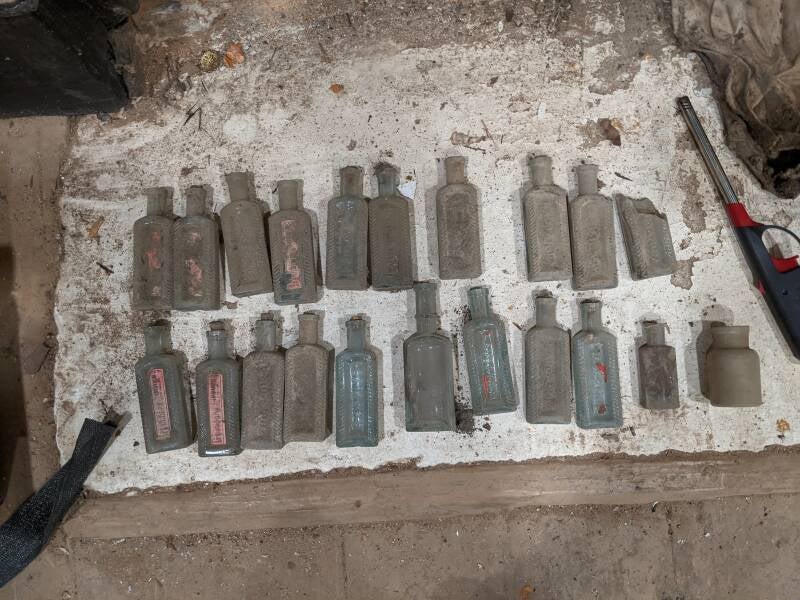Reborn Relic
The old farmhouse sat heavy on the Georgia soil, its weathered frame wrapped in cheap vinyl siding, like a bandage over a wound. Gnarled vines clung to its walls and chimneys, remnants of harvests long gone, tying it to a past of cotton fields and antebellum dreams. For decades, it had stood quiet, its rooms once alive with laughter now thick with dust, waiting for someone to wake it up.
The work to bring it back started small but felt big. Boards nailed over windows and doors came down, letting sunlight spill across floors worn smooth by generations. A well, choked with years of neglect, sputtered back to life. A new septic system was installed, replacing the one that had been rotting beneath. The insurance agent said no policy would come without heat and air, proof that someone meant to stay. The house’s old wiring could only handle a heat pump, its warmth barely enough when the temperature dipped. A reliable propane heater was a backup on the coldest nights. The chimneys, once wide open to the sky, got capped to keep out the rain that had spilled through, staining the heart of the house.
In a back room, a bathroom took shape, its walls built to be kind to the house’s history, a history of planters and their families, of wealth built on cotton and lost to time. A bedroom, plain but full of promise, felt like it was waiting for new dreams to fill it, its walls holding echoes of the South. The kitchen was more survival than splendor that first year. A tired refrigerator hummed beside a toaster oven and microwave, moved around as needed. A bathroom vanity from Lowe’s stood in as a sink, holding plastic forks where silver once might have shone. A bungee cord kept the back door shut tight; a can of bug spray stood guard against the insects that crept in at night.
Winter came hard, slipping through walls with no insulation to stop it. The vinyl siding and clapboard were no match for the cold. An electric blanket and steaming showers were the only things that kept the chill from winning. Every corner of the house held a story. Behind a boarded-up fireplace, straw was stacked high, like birds had attempted a nest there, clinging to an idea they couldn’t let go. In the crawl space, old medicine bottles hid; someone’s pain, someone’s life, left behind without a name.
The work never stopped. Doors and windows were broken, and basic utilities needed to be installed. Each fix felt like a promise to the house. It wasn’t just a building; it was a piece of the South, woven with the sweat and sorrow of those who’d lived there, from cotton barons to the ones who came after. It pulled you in, demanding care, claiming you as its own, just as it always had.









